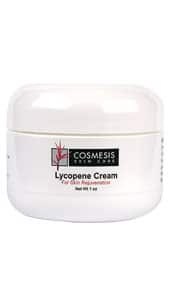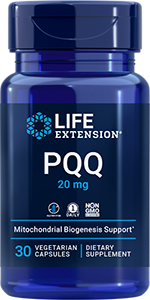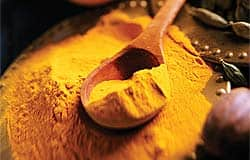Supplementation with curcumin prevents progression to diabetes among prediabetics Friday, August 10, 2012. Supplementing with curcumin extract may help protect against the development of type 2 diabetes among prediabetic men and women, according to the findings of a trial published online on July 6, 2012 in the American Diabetes Association journal Diabetes Care. The trial included 237 individuals with prediabetes, defined as having a fasting plasma glucose level between 100 and 124 milligrams per deciliter (mg/dL), oral glucose tolerance test plasma glucose between 140 and 199 mg/dL two hours following glucose administration, or a glycated hemoglobin (HbA1C) level of 5.7 to 6.4 percent. Participants were randomized to receive a daily regimen of three curcumin capsules containing 240 milligrams curcuminoids each twice per day or placebo capsules for nine months. Physical examinations conducted upon enrollment and at three, six and nine months provided data on body weight, waist circumference, glucose tolerance, insulin resistance, glycated hemoglobin, C-peptide and other factors. At the end of the trial, 16.4 percent of the participants who received a placebo had developed diabetes, defined as a fasting plasma glucose level of 126 mg/dL or higher, an oral glucose tolerance test level of 200 mg/dL or higher at 2 hours, or a HbA1C of 6.5% or more. Among those who received curcumin, no cases of diabetes occurred. The curcumin group had better functioning of beta-cells (cells of the pancreas that store and release insulin and C-peptide), decreased insulin resistance and higher adiponectin levels compared to the placebo group. Additionally, a slight reduction in body weight and waist circumference was observed in the curcumin group at the last follow-up visit. No significant adverse effects were observed. Authors Somlak Cheungsamarn and colleagues suggest that curcumin may prevent the progression of prediabetes to diabetes by maintaining healthy beta-cell function. They also noted that the increase in adiponectin observed in association with curcumin supplementation helps lower inflammation, which is a cause of beta-cell degradation. "Our study showed that the curcumin extract can effectively prevent the prediabetes population from developing type 2 diabetes mellitus," they write. "Although we found that the results were quite remarkable, a longer trial may be required to see if the curcumin-treated prediabetes population will eventually develop type 2 diabetes mellitus." "Because of its benefits and safety, we propose that curcumin extract may be used for an intervention therapy for the prediabetes population," the authors conclude. |
 |
| The findings of research scheduled for presentation at the 244th American Chemical Society meeting, to be held August 19-23, 2012 in Philadelphia, reveal a protective effect for peaches, plums and nectarines against metabolic syndrome—a cluster of factors that predict obesity-related diabetes and/or cardiovascular disease. "In recent years obesity has become a major concern in society due to the health problems associated to it," noted Texas AgriLife Research food scientist Dr Luis Cisneros-Zevallos. "In the U.S., statistics show that around 30 percent of the population is overweight or obese, and these cases are increasing every year in alarming numbers." "The major concern about obesity is the associated disease known as metabolic syndrome," he observed. "Our studies have shown that stone fruits – peaches, plums and nectarines – have bioactive compounds that can potentially fight the syndrome, " Dr Cisneros-Zevallos reported." Our work indicates that phenolic compounds present in these fruits have antiobesity, anti-inflammatory and antidiabetic properties in different cell lines and may also reduce the oxidation of bad cholesterol LDL." "Our work shows that the four major phenolic groups--anthocyanins, chlorogenic acids, quercetin derivatives and catechins--work on different cells --fat cells, macrophages and vascular endothelial cells," he continued. "They modulate different expressions of genes and proteins depending on the type of compound. However, at the same time, all of them are working simultaneously in different fronts against the components of the disease, including obesity, inflammation, diabetes and cardiovascular disease." "Each of these stone fruits contain similar phenolic groups but in differing proportions so all of them are a good source of health promoting compounds and may complement each other," he concluded. |
|

|  | Lycopene Cream, 1 oz
Item #80146
|  | | Only a small fraction of the lycopene you eat ever reaches your skin. Because the lycopene in raw tomatoes is tightly bound to indigestible fiber, little of it is absorbed by your body. And most of the lycopene that is ingested gets deposited in fat-rich organs such as your eyes, adrenal glands, colon, and liver—instead of your skin. The good news is the fat soluble nature and small molecule size of this plant nutrient make it more easily absorbed when applied topically to the lipid-rich environment of the skin! Cosmesis has created a topical lycopene formulation in an antioxidant cream format. Applied directly to the delicate tissue of the face, Cosmesis Lycopene Cream—with its unique combination of lycopene and extracts of green, red, and white tea—provides targeted support against the visible effects of UV radiation and oxidative stress. | |  | PQQ Caps with BioPQQ™, 20 mg, 30 vegetarian capsules
Item #01647 |  | | The enormous amount of energy generated within the mitochondria exposes them to constant free radical attack. The resulting mitochondrial decay is a hallmark of aging. PQQ protects and augments delicate mitochondrial structures to promote youthful cellular function in three distinct ways: - Antioxidant power. Like CoQ10, PQQ is a highly potent antioxidant. Its extraordinary molecular stability enables it to facilitate thousands of biochemical reactions in the mitochondria without breaking down, for maximum antioxidant and bioenergetic support.
- Favorably modulates gene expression. PQQ activates genes that promote formation of new mitochondria—and beneficially interacts with genes directly involved in mitochondrial health.
- Mitochondrial defense. Mitochondria possess their own DNA, distinct from the DNA contained in the nucleus. Unfortunately, compared to nuclear DNA, mitochondrial DNA are relatively unprotected. PQQ's antioxidant potency and favorable gene expression profile act to support mitochondrial defense.
| | |












